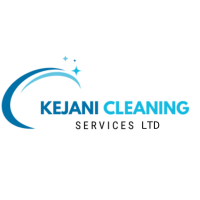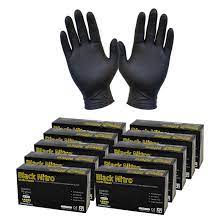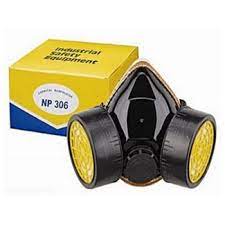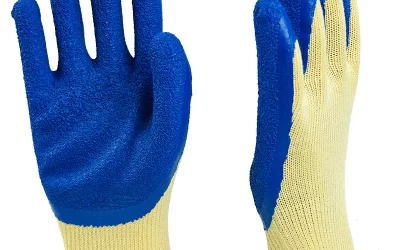In the food industry, hygiene and safety are non-negotiable. Whether it’s food manufacturing, processing, packaging, or handling in restaurants and hotels, personal protective equipment (PPE) is a critical element in ensuring food safety, worker protection, and regulatory compliance.
Foodborne illnesses, workplace injuries, and contamination risks are ever-present in this sector. That’s why PPE isn’t just a workplace accessory — it’s a health and safety necessity. In Kenya, organizations like the Public Health Department, KEBS, and international bodies like HACCP and ISO 22000 demand strict adherence to food safety standards, including PPE usage.
Let’s dive deep into why PPE is so important in the food industry.
What Is PPE in the Food Industry?
Personal Protective Equipment (PPE) in the food industry refers to gear worn by employees to:
-
Prevent food contamination
-
Protect workers from injury or exposure to harmful substances
-
Maintain hygiene standards across all processes
Typical PPE in the food industry includes:
-
Hairnets or head caps
-
Beard nets (for male staff)
-
Face masks
-
Disposable gloves
-
Aprons or gowns
-
Slip-resistant footwear
-
Safety goggles (in chemical handling areas)
Why PPE Is Important in the Food Industry
1. Prevents Contamination of Food Products
One of the primary reasons for PPE in food processing is to maintain hygiene and prevent contamination. Humans are a significant source of contaminants — from hair, skin, saliva, and clothing fibers, to microorganisms like bacteria and viruses.
Without proper PPE:
-
Hair can fall into food during preparation
-
Sweat or saliva droplets can contaminate cooked or raw products
-
Dirt and pathogens on hands can transfer to food surfaces
Hairnets, gloves, and face masks help keep this contamination to a minimum.
2. Protects Workers from Hazards
The food industry involves sharp tools, hot surfaces, slippery floors, and cleaning chemicals. Workers are at risk of:
-
Burns from hot oil or steam
-
Cuts from knives or slicers
-
Slips from wet floors
-
Skin irritation from sanitizers and detergents
Aprons, gloves, slip-resistant shoes, and chemical-resistant PPE protect workers from these hazards, improving workplace safety and reducing injury-related downtime.
3. Ensures Regulatory Compliance
PPE usage is not just best practice — it’s the law in many jurisdictions. In Kenya, food processing and hospitality businesses must follow:
-
Occupational Safety and Health Act (OSHA)
-
Public Health Act
-
KEBS food safety standards (e.g. KS EAS 39 for hygiene)
-
International standards like HACCP, ISO 22000, and BRCGS
Non-compliance can lead to:
-
Heavy fines
-
Business closure
-
Product recalls
-
Loss of certification or export licenses
Implementing PPE policies ensures your business meets these standards and avoids penalties.
4. Builds Consumer Trust and Brand Reputation
In today’s competitive food market, customers want to know that the food they eat is handled safely. Businesses that prioritize hygiene — including the proper use of PPE — build trust and loyalty.
Examples include:
-
Clean, uniformed food handlers with gloves and masks in restaurants
-
Factory staff wearing full protective clothing in food processing plants
-
Street vendors using disposable gloves and aprons
This visible commitment to hygiene boosts brand credibility, especially in times of heightened public health concerns, like during pandemics.
5. Supports Cross-Contamination Control
Cross-contamination occurs when bacteria or allergens are transferred from one surface or food product to another. This is a major concern in:
-
Allergen management (e.g. preventing nuts from contaminating dairy-free products)
-
Raw vs cooked food separation
-
Halal/non-halal or vegan/non-vegan food separation
Using color-coded aprons, gloves, or hairnets can help enforce separation protocols. For instance:
-
Red gloves for handling raw meat
-
Blue aprons for seafood areas
-
Green for vegetable-only sections
This organized system minimizes the risk of dangerous cross-contamination.
6. Enhances Employee Discipline and Professionalism
Uniform PPE usage creates a sense of professional culture and accountability among staff. Employees are more likely to:
-
Follow hygiene rules
-
Be mindful of food handling procedures
-
Maintain cleanliness in the work environment
It also makes it easier for supervisors to spot non-compliance or identify employees not following procedures.
Common Types of PPE in the Food Industry
| PPE Type | Function |
|---|---|
| Hairnets/Head covers | Prevent hair from falling into food |
| Beard covers | Block facial hair contamination |
| Disposable gloves | Maintain hand hygiene, prevent food contact |
| Face masks | Prevent saliva droplets |
| Aprons | Keep clothing from transferring dirt |
| Safety shoes | Prevent slips and protect from spills |
| Eye protection | Shield against chemicals or hot splashes |
| Sleeves/Arm covers | Protect exposed skin in food mixing areas |
When Should PPE Be Replaced?
In the food industry, PPE is often disposable and must be replaced:
-
After each shift or task
-
When moving between allergen zones
-
If visibly soiled or damaged
-
In the event of contamination (e.g. glove tears)
Reusable PPE (like safety shoes or goggles) should be cleaned and sanitized daily.
Training and Enforcement
Providing PPE is not enough. Employees must be trained on:
-
Proper PPE use and disposal
-
How to avoid cross-contamination
-
How to report PPE damage or shortages
Managers should perform routine audits and maintain PPE stock levels to avoid disruptions.
Conclusion
PPE plays a vital role in maintaining food safety, protecting workers, and ensuring compliance with hygiene regulations. Whether you run a food processing plant, hotel kitchen, catering business, or restaurant, PPE must be a core part of your food safety plan.
At Kejani Cleaning Supplies, we provide high-quality PPE suitable for the food industry — from disposable gloves and aprons to hairnets and face masks.





0 Comments